Choosing the right air conditioning unit might be an intimidating endeavor for someone that has never browsed the available options.
However, if you know what to look for, then all you need to do is check off the right boxes.
This article focuses on the terminology and factors you’ll need to look at during your air conditioning quest.
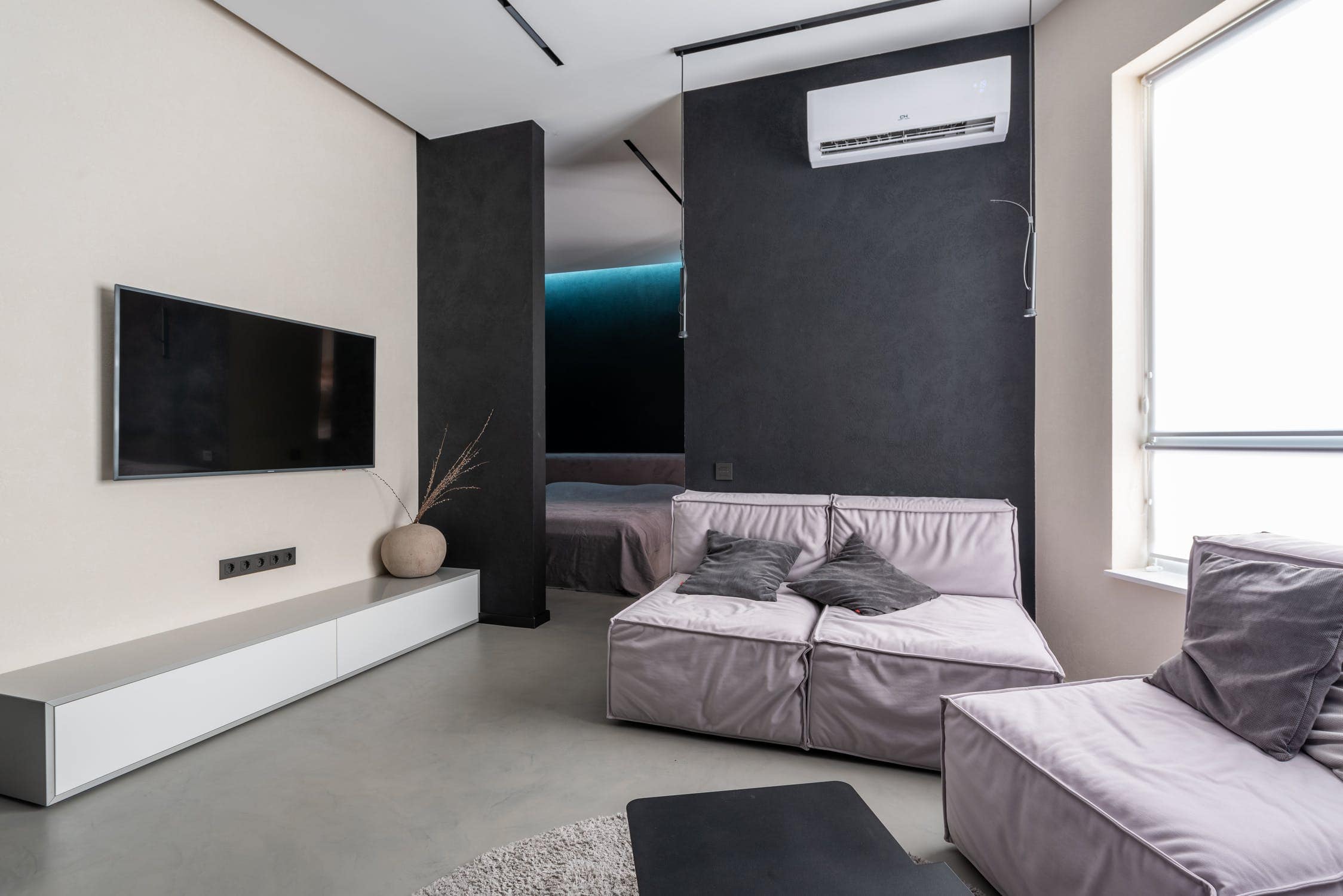
Air Conditioner Sizing Terminology and Common Concepts
Like all consumer products, AC units are described in specific jargon, which we’re going to use throughout the article. Let’s go through some of the terms and concepts and explain them before diving into the topic of selecting the right air conditioner size for your home.
British Thermal Units (BTU/hr)
This is the amount of energy necessary to raise the temperature of one pound of water by one degree Fahrenheit. You can convert BTU/hr into Watts. For a consumer-grade AC, you need 20 BTU/hr per square foot.
Refrigeration Tonnage
This is another way of indicating the size and power of an AC unit. The so-called “tonnage” is a rating mechanism that describes how much cooling the appliance can provide. You can usually find this number on the AC compressor.
Energy Efficiency Ratio (EER)
This is the relationship between the energy the unit consumes and the output it supplies. The larger the ratio, the more efficient the appliance.
Seasonal Energy Efficiency Ratio (SEER)
This is the typical seasonal efficiency of the air conditioner. Keep in mind that two ACs with the same ton of refrigeration can have a different SEER. Thus you need to consider the efficiency component separately before buying.
AC unit varieties differ not only in size but also in functionality. You might come across the following types:
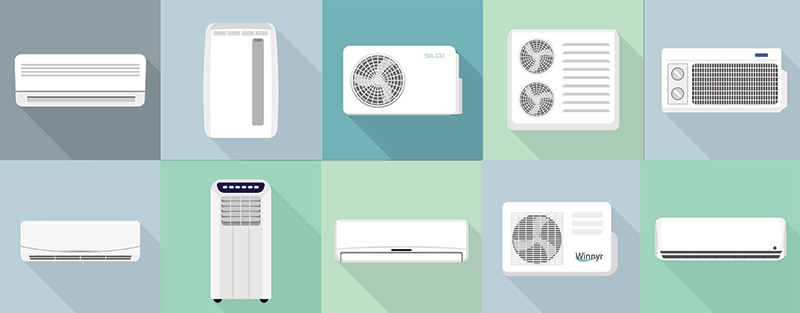
Window
Usually installed on slide-up windows and removed during the cold season, they’re easy to use and clean. They pull hot air from the environment, process it through the cooling coil, and return it to the room.
Casement
Like the above, this appliance sits on the window. However, it’s more suitable for those that swing out or open horizontally.
Portable
These air conditioners are less energy efficient and noisier. Still, they are convenient for those consumers who want to cool different rooms at different times.
Wall-mounted
These ACs are more permanent and efficient than the other models. They require professional installation, and most of them provide cooling and heating solutions in one appliance.
Central Systems
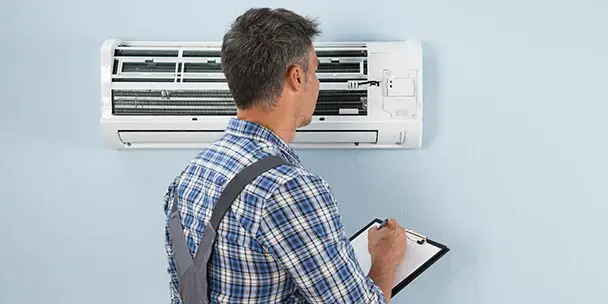
These are whole-house solutions that connect to the ducting and have branches in all the rooms. Although expensive to install, they’re convenient and efficient. Only licensed professionals can install these.
Mini-split Systems
Much like wall-mounted solutions, mini-split systems consist of indoor units that connect to an outdoor compressor. It’s an excellent option for large families or office spaces, as each room occupant can control the temperature separately.
How to Properly Size an Air Conditioner
If you’re going to select an air conditioner for your home or office space, choosing the right size and efficiency should be your first priority.
A given AC unit can perform the best in one area. However, it might also do terribly in a smaller space, causing higher electricity bills and less cooling efficiency.
An undersized AC won’t have the capacity to cover the whole square footage of a room. At the same time, an oversized unit will eat up energy instead of cooling your home to the optimal comfort level.
To raise the efficiency of the selected unit, consider a few other essential factors.
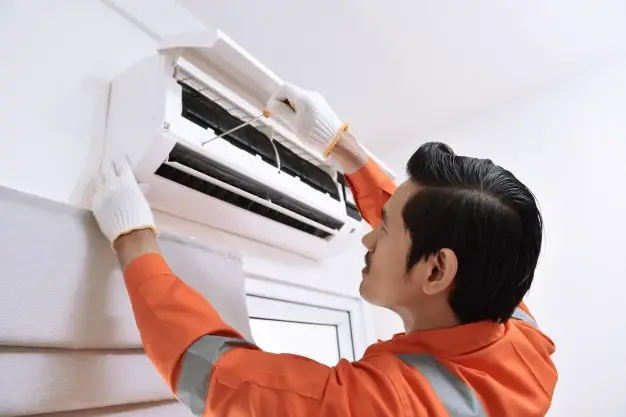
How Large Is the Room/Home/Area?
One of the top concerns you have to keep in mind is the size of the area. In addition to the square footage, don’t forget to measure the height of your ceilings. Cool air is heavier, so it’ll accumulate closer to the ground with no significant effect on the overall cooling. However, if you’re considering the AC unit for heating as well, then height might be an issue.
What’s the General Sun Exposure?
This one is straightforward; if the room is on the sunny side, the air conditioner will use more power. If your home is generally shady, cooling it will be much easier.
Is the Home Well Insulated? What Are The Building Materials Used?
The efficiency of your AC is highly dependent on the quality of the insulation in your home. If there are too many spots in the house where cool air escapes, the air conditioning unit’s efficiency will fall. Plus, some building materials are more efficient in retaining heat and cold, making the indoor temperatures easier to regulate.
Where in the Room Are You Going to Install the Unit?
AC unit placement is vital for the cool/hot air distribution and temperature consistency throughout an area. First of all, the optimal spot should be somewhere in the middle of your house.
Also, consider the structure and position of ducts, doors, and windows. They regulate airflow and can be used to enhance an air conditioner’s efficiency.

What’s the Room Used For?
Some rooms in your home might get hotter or colder depending on usage and occupancy. For example, kitchens get hot faster than any other room. Thus, an AC with more BTU will be necessary. Experts recommend adding 4,000 to the size you’d choose for the square footage.
Besides, the more people who occupy an area, the harder it’ll be to cool the air. Add 600 BTU per person to the size.
How Do I Calculate What Size Air Conditioner I Need?
Let’s discuss a few methods for finding the correct AC size for your home.

Formula
Although there are more factors to consider, square footage is the most important number you need to know before calculating your AC unit’s tonnage. Here’s the formula:
- Necessary Tonnage = (Square Footage x 30 / 12,000) – 1
For 2,000 sq feet, the formula will work as follows:
- (2.000 x 30 / 12,000) – 1 = 4 tons
Climate Zone Map
A climate zone map is a handy tool to approximate the useful tonnage for your location. However, this neglects all other factors like regular occupancy, sun exposure, insulation, and the building’s age. It only considers heat dispersion throughout the year and the size of the area.
Professional Help
If you’re not sure about the insulation and ductwork quality and age, you might need professional help. Enlist specialists who’ll measure the square footage, inspect the ductwork, and present an educated opinion on all the factors.
Air Conditioner Size Calculator
AC size calculators are a practical tool to ensure that you’re buying the right appliance. Input the square footage, the number of floors, your zip code, insulation level, and the desired indoor temperature. The calculator will estimate the required BTUs for the area in question.
How Do Climate Zones Factor Into the Size of My AC?
As mentioned above, the climate zones are important to think about when choosing an AC unit. In the U.S., air conditioner manufacturers use zoning charts to approximate the unit size per square foot.
Even within one state, different areas are categorized according to the highest and lowest temperatures observed. The recommendations generalize several ranges of square feet within the climate group and suggest a specific tonnage.
For cooling units, the chart separates eight zones with well-defined areas. For example, Southern Texas is in “Zone 2,” while the Northern part is in “Zone 4,” indicating that the latter observes lower temperatures.
A similar division works for the heating BTU requirements.
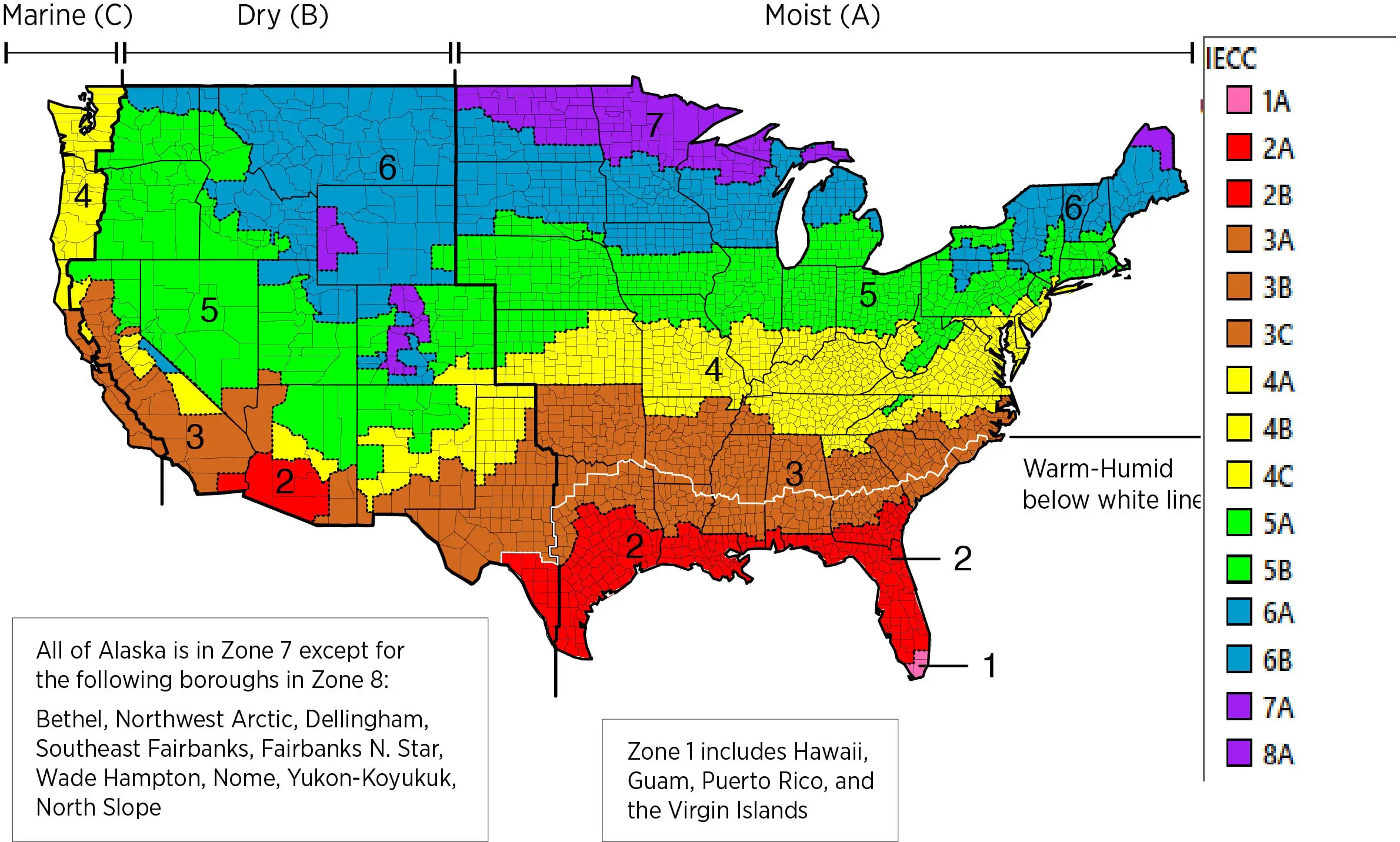
Conclusion
These are the basic sizing factors, along with the sizing formula and calculator. Follow our tips, and you’ll be able to buy the perfect AC unit for your home or office. If you’re still not sure which size is adequate for your home, we recommend hiring a professional.
People Also Ask
As you can see, your AC size matters. We’ve answered some frequently asked questions to help you get the right one.
Yes. If the air conditioner is too large, you’ll experience a higher electricity bill, more humid conditions, and an unnecessarily cold space. However, slightly oversized units perform better, as you never make them work at their highest capacity, which saves EET.
An air conditioner with lower BTU than necessary will be inefficient, causing heat spots to develop. You’ll likely make the unit work at the highest capacity possible, which will exhaust the appliance sooner.
The most straightforward method is to find the outdoor compressor and look up the model (a string of numbers and letters). Among the indicators, find the two-digit even number, which can range between 18 and 60. It’s the first two digits of the unit’s capacity in BTUs. Suppose your AC’s model indicates 20. It means that it has 20,000 BTUs. 20,000 / 12,000 = 1.66, which is the tonnage of your air conditioner.

